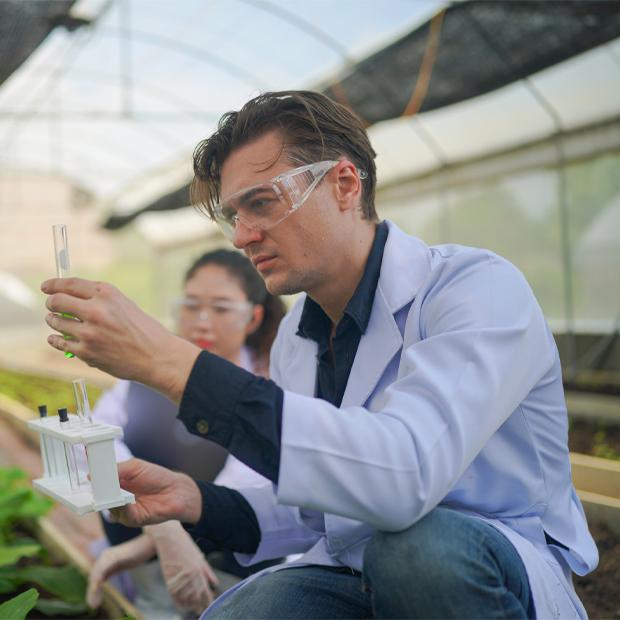Engineering biology presents a revolutionary frontier for the UK food and fast-moving consumer goods (FMCG) industry, offering benefits that can reshape production, sustainability, and innovation. Among its many exciting advantages for society is its potential to transform overall health, allowing us to tailor our diets and medication to exactly what our bodies need for optimum wellbeing, potentially increasing both longevity and quality of life.
What is engineering biology?
Engineering biology describes the application of engineering principles to reconstruct biological systems, such as cells or proteins.
Earlier this month, the government announced its ‘Landmark National Vision for Engineering Biology’ plan, an investment of two billion pounds over the next 10 years to harness the power of biology and deliver new medical therapies, crop varieties, eco-friendly fuels, and chemicals.
The government will also double down on establishing the UK as a world leader in responsible engineering biology innovation by 2030, the wider ambition being to foster economic growth in the UK and create higher-paying jobs and opportunities across various industries throughout the country.
While we wait for these exciting developments to filter into job opportunities for the scientific sector, let’s look at how engineering biology might transform society.
Crop productivity
One of the primary advantages of engineering biology in the food and FMCG sector is enhanced crop productivity. By employing advanced genetic techniques, scientists can modify plants to resist pests, diseases, and adverse environmental conditions, resulting in increased yields and a more reliable food supply. With population growth and climate change posing significant challenges to agriculture, this boost in productivity can make a real difference to food security.
Furthermore, engineering biology enables the creation of crops with improved nutritional profiles, fortifying staple foods with essential vitamins and minerals. These biofortified crops can contribute significantly to public health, reducing the incidence of nutrient-related disorders.
The technology also holds the promise of producing environmentally sustainable alternatives to traditional agricultural practices. Lab-grown meat, for instance, eliminates the need for vast amounts of land and water, reducing the environmental footprint associated with livestock farming.
Enhanced supply and quality control
Engineering biology can also be used in food processing and manufacturing. The ability to engineer microorganisms for fermentation processes can lead to the development of novel ingredients and bio-based materials. This diversifies the range of products available to consumers and opens avenues for the creation of more sustainable packaging options, reducing the industry’s reliance on non-renewable resources. By incorporating bio-based materials and ingredients, companies can align their products with eco-friendly practices.
The precision and predictability offered by engineering biology helps raise quality control standards in food and FMCG manufacturing. Tailoring genetic traits guarantees consistency in product characteristics, reducing variability and enhancing overall product quality. This is particularly crucial in industries reliant on consumer satisfaction and trust.
Research and development opportunities
Through research and development, companies can stay ahead of market trends, continuously introducing bioengineered products that capture consumer interest. We can only imagine the long-term impact on health, especially for those with specialist diets who might otherwise struggle to get the right nutrients. In our lifetime, scientists may even create healthy replacements for high-fat-salt-sugar products that finally kick our global ‘sweet tooth’ to the kerb.
The sector could soon become one of the most profitable and stimulating for ambitious jobseekers, also enhancing the prospects of those in a host of related sectors, from farming and storage to distribution. The government sees the UK as on track to becoming a global science superpower and an “innovation nation”. A combination of expertise, funding and creative thinking is sure to get us there faster.
If you’re inspired by food, health, or the environment, watch this space. 2024 is set to be an exciting year for the scientific sector and we’re ready to help you build your teams or take your next career step. Contact our team of scientific specialist recruiters.




